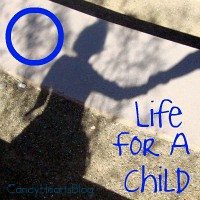YAY!
Glad that's over.
I scored 100% on the exam and managed the megacode as well as I could.
Ultimately my "patient" died, but...hey...that's just what happens sometimes.
The megacode ran the gamut of arrhythmias, back and forth between having a pulse and
being pulseless, up down and all around with electricity and meds.
Oh, yeah...and...he wanted me to calculate a Dopamine drip
off the top of my just head for kicks and giggles.
Ultimately my "patient" died, but...hey...that's just what happens sometimes.
The megacode ran the gamut of arrhythmias, back and forth between having a pulse and
being pulseless, up down and all around with electricity and meds.
Oh, yeah...and...he wanted me to calculate a Dopamine drip
off the top of my just head for kicks and giggles.
But that's not why I'm posting today.
Nope.
I just wanted to mention that I've taken ACLS many times.
Nope.
I just wanted to mention that I've taken ACLS many times.
For whatever reason THIS year they REALLY seemed to drive home the importance
of checking a blood sugar for any unresponsive/neurologically impaired patient.
I know it's not that I'm just hypersensitive to the words
"BLOOD GLUCOSE".
This would be the 3rd time I've taken ACLS since her diagnosis in 2005.
But THIS time, they reiterated it over and over and over.
In the lecture.
In the films.
In the hands on review.
"EVERYONE who is unresponsive or showing signs of neurologic impairment gets a
blood glucose check stat."
blood glucose check stat."
I know it's always been there.
I know it's a standard of care for all EMS and first responders.
I. know. that.
It's just that the magnitude of how important checking a blood glucose as quickly as possible
has never been emphasized as much during any ACLS class that I've ever taken before.
(By the way, that would include multiple hospitals based as well as EMS run programs in 3 states on two sides of the country!)
Today, I left that classroom with my shiny new ACLS card in hand, feeling refreshed about the management of algorithms for tachycardia, bradycardia, wide complex, narrow complex...
oh yeah...and dead.
oh yeah...and dead.
More than that, however, I left feeling confident that if Sugar were to be found
alone unresponsive, confused, or otherwise appearing to be neurologically impaired
(regardless whether or not she had a medical ID on her person),
SOMEONE would know to
check her blood sugar STAT.
alone unresponsive, confused, or otherwise appearing to be neurologically impaired
(regardless whether or not she had a medical ID on her person),
SOMEONE would know to
check her blood sugar STAT.
Because it doesn't matter how prepared you are to pace, cardiovert, defibrillate,
or administer an antiarrhythmic medication...
In the end, none of it is going to help,
if a blood sugar emergency doesn't get corrected!!!!





(2).png)

Congrats! I can remember taking ACLS (it was years ago when I was working as a peds ER nurse)...tied my stomach in knots just thinking and doing the imaginary code! Glad to hear they're emphasizing the BG check now too (I don't recall that being really emphasized when I took it)
ReplyDeleteBG checks were rarely emphasized in my ACLS classes. Wendy, my confidence in medical care and ACLS has been strengthened a bit by this post. I always felt that BG was WAY over-looked and poo-poo'd.
ReplyDeleteLove you AND glad you passed with flying colors. I knew you would. You are that kind of nurse. Amazing.
YOU DID IT!!!
ReplyDeleteI am glad to hear that D is becoming a little more of a priority these days.
Go Wendy! Go Wendy! WOOT!
ReplyDeleteWendy, thank you so much for your comment on my photo blog. I've been in a trans the past 2 weeks after finding out. I decided I wouldn't think about finding a diabetic community for a few weeks until I didn't feel so overwhelmed. I'm so glad I found you!
ReplyDeleteThank you again for your kind words!
Yay for you!!!! Congrats!!!
ReplyDeleteIt makes this D mama happy to know the emphasis placed on checking BG!
Again, congrats! :)
Good news. I always wonder if they would figure out to check a sugar...
ReplyDeleteWay to go Wendy! I too am glad to know that an emphasis was placed on checking BG. I always think about that....
ReplyDeleteCongratulations!
ReplyDeleteIt is such a relief that bg check is standard for such emergencies!!
aw. glad its over. glad you passed. sorry your patient died. *eh herm*.
ReplyDelete